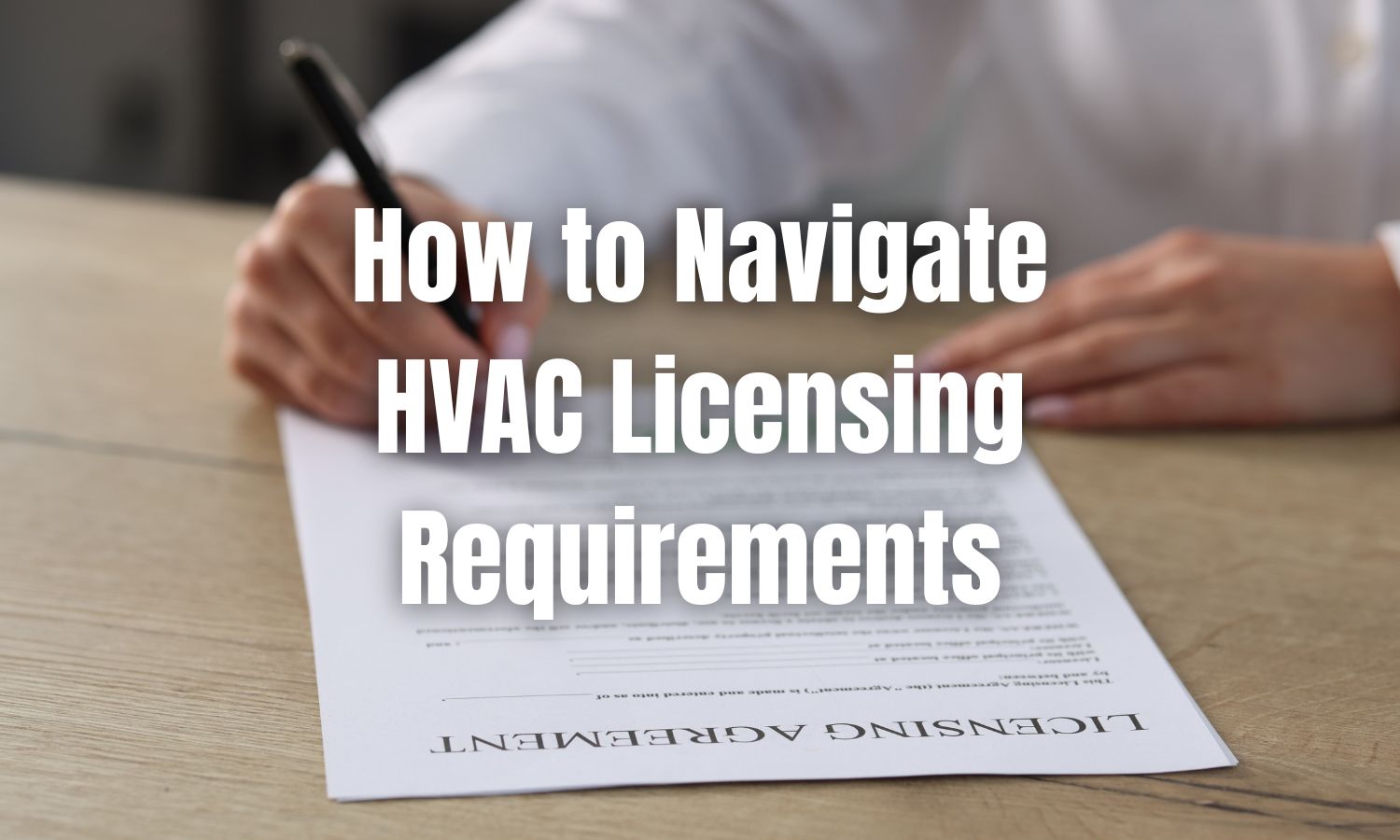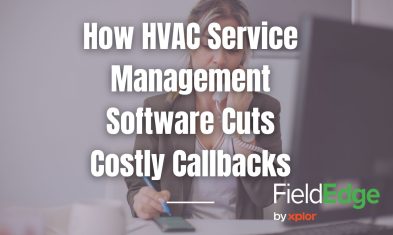Getting the right HVAC licenses can feel like a maze—but understanding HVAC licensing requirements is crucial for scaling your business, staying legal and earning customer trust. These requirements protect your company, ensure safety and set you apart as a professional in a competitive industry.
Getting licensed isn’t just about staying legal—it’s about protecting your brand, reducing risk, and making expansion easier.
This guide will walk you through everything you need to know about HVAC licensing requirements, including:
- State-by-state licensing rules
- Step-by-step instructions to get licensed
- Common mistakes to avoid
- How to maintain your licenses
- Tips for expanding to new states
Why HVAC Licensing Requirements Matter
For businesses like yours, licensing goes beyond compliance—it’s directly tied to revenue, liability, and scalability.
- Win Bigger Contracts: Large commercial and government projects often require proof of licensing for the company and every tech on-site.
- Reduce Liability: With multiple crews in the field, proper licensing and insurance protect you from lawsuits and penalties.
- Boost Reputation: Licensing demonstrates professionalism to commercial clients and gives you an edge in competitive bids.
HVAC licensing requirements exist for good reasons: they keep customers safe and ensure technicians know what they’re doing. In 2024, there were 425,200 HVAC and refrigeration technicians employed in the US, making licensing a key differentiator between pros and novices.
Fun Fact: HVAC contractors earn an average of $59,810 per year, and higher license levels often mean higher pay.
Working without proper licenses is risky. You could face fines, lawsuits or even business closure. Plus, customers trust licensed contractors more—it’s like having a badge that says, “I know what I’m doing.”
Standard HVAC Licensing Requirements Across States
While requirements vary by state, here are the most common elements your business should prepare for:
- Age: 18 years old or older
- Background: A clean criminal record with no felonies
- Education: A high school diploma, GED, or bachelor’s degree (for the highest level of mastery in some states)
- Work experience: Some states require 3,000 hours (≈18 months) under a licensed contractor
- Other requirements: Passing exams, paying fees, maintaining insurance or bonding, completing continuing education
Pro Tip! Licensing rules can differ widely from state to state—what works in Texas may not work in California. Always check your state’s specific regulations.
State-by-State Licensing Variations
HVAC licensing requirements vary significantly between states. Here’s a quick breakdown:
| State Type | Requirements | Example States |
| Strict | Contractor & tech licenses | California, Florida, Texas |
| Medium | One main license | New York, Georgia, Ohio |
| Loose | Few/no state requirements | Montana, Vermont, Wyoming |
Expansion Risk: Some states leave licensing up to cities and local counties, making multi-area operations more complex. If your business operates across multiple jurisdictions, requirements can multiply fast.
The HVAC industry is projected to grow 5% between 2022-2032, creating opportunities for licensed contractors.
Step-by-Step Guide to HVAC Licensing
For your HVAC business, licensing is less about if you get licensed and more about how you manage it at scale.
Step 1: Audit Current Licenses
Review every technician’s license, expiration date, and state compliance.
Step 2: Assign Licensing Ownership
Designate an operations manager or admin to oversee licensing tasks.
Step 3: Standardize Education and Training
Enroll techs in accredited programs; batch CEUs to keep the team on track.
Step 4: Track Renewal Cycles
Most licenses renew every 1–3 years. Missing deadlines can sideline entire crews.
Step 5: Automate Reminders
Use software to set alerts for renewals, CEUs, and insurance requirements.
Common HVAC Licensing Mistakes for Businesses
As businesses scale, these mistakes become more costly:
1: Inconsistent Tracking Across Teams: One expired license can stall a project.
2: Failure to Budget for Licensing Costs: Fees, CEUs, and insurance scale quickly with team size.
3: Overlooking Local Rules: Operating across counties or states often requires multiple registrations.
4: Poor Record-Keeping: Missing paperwork delays renewals and contract approvals.
Expanding into New States
For HVAC contractors like you, expansion is often the next step for scaling—but it brings licensing complexity.
- Research Reciprocity Agreements: Some states honor licenses from others, saving time.
- Plan Expansion Costs: Factor in new license fees, bonding, CEUs, and insurance requirements.
- Hire Local Talent: Sometimes it’s faster to onboard licensed local techs than wait for transfers.
- Work with Compliance Experts: Licensing consultants or attorneys can streamline multi-state compliance.
Technology and HVAC Licensing Requirements
HVAC technology is changing fast, and licensing rules follow suit:
Smart thermostats, heat pumps, and green technology are becoming standard. Many states are updating their HVAC licensing requirements to cover these new systems.
Some states now require training on refrigerant handling due to environmental concerns. Others want contractors to understand energy efficiency standards.
Quick Tips to Simplify HVAC Licensing
- Keep digital + physical license folders
- Set 90-day renewal reminders
- Complete continuing education in batches
Want to streamline your entire operations with next level software? Schedule a personalized FieldEdge demo today!
Hone In on HVAC Licensing Requirements
For HVAC companies, licensing is more than compliance—it’s crucial for scaling. Whether you’re bidding on large contracts, scaling into new markets, or managing dozens of techs, proper licensing protects your revenue and reputation.
Yes, the process is complex. But with the right systems in place, licensing becomes a strength—not a stumbling block.
Ready to simplify compliance, track licenses across your team, and grow faster with the best HVAC software? Book a demo of FieldEdge today!
Related: HVAC License Guide for Every State




